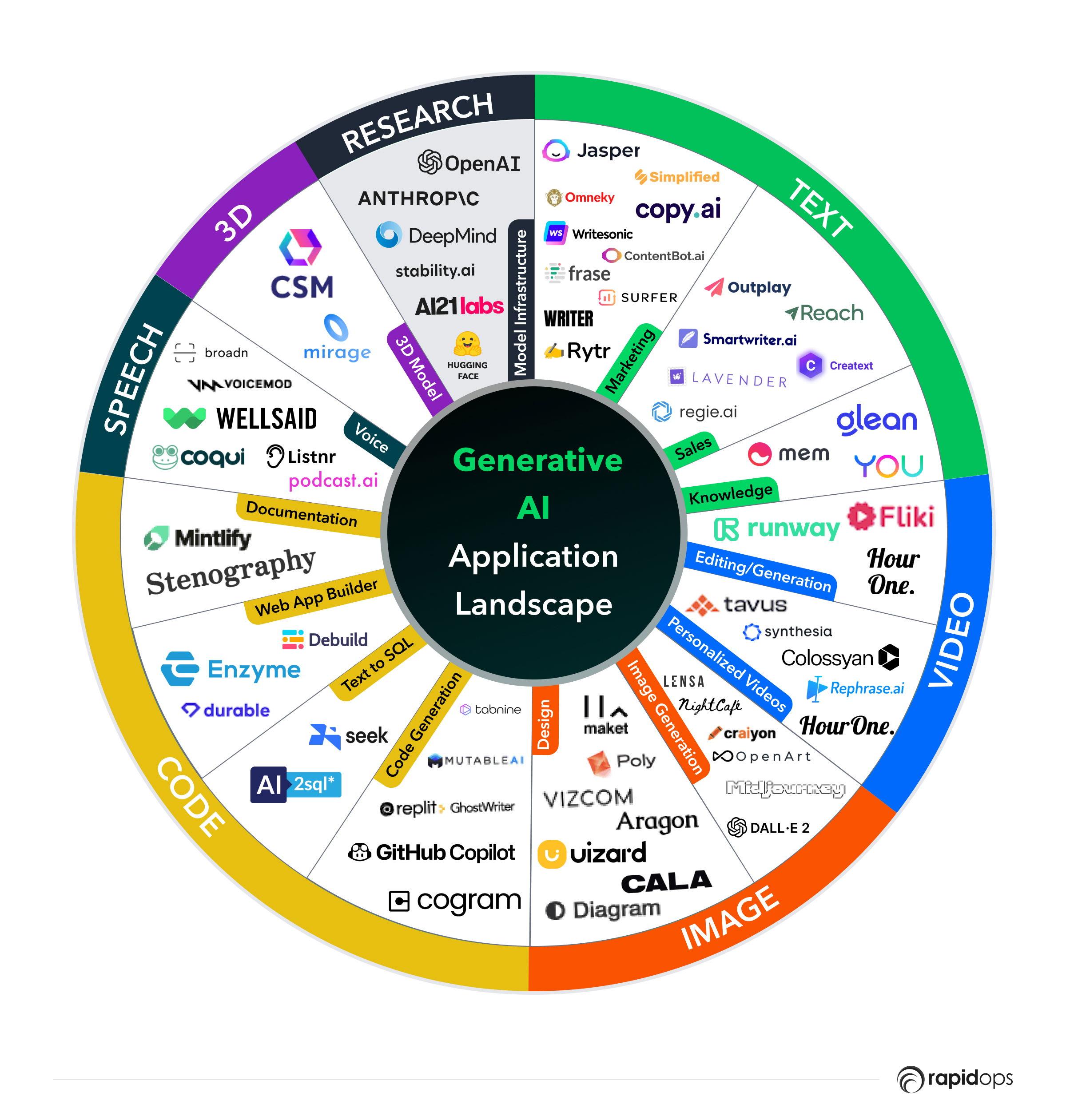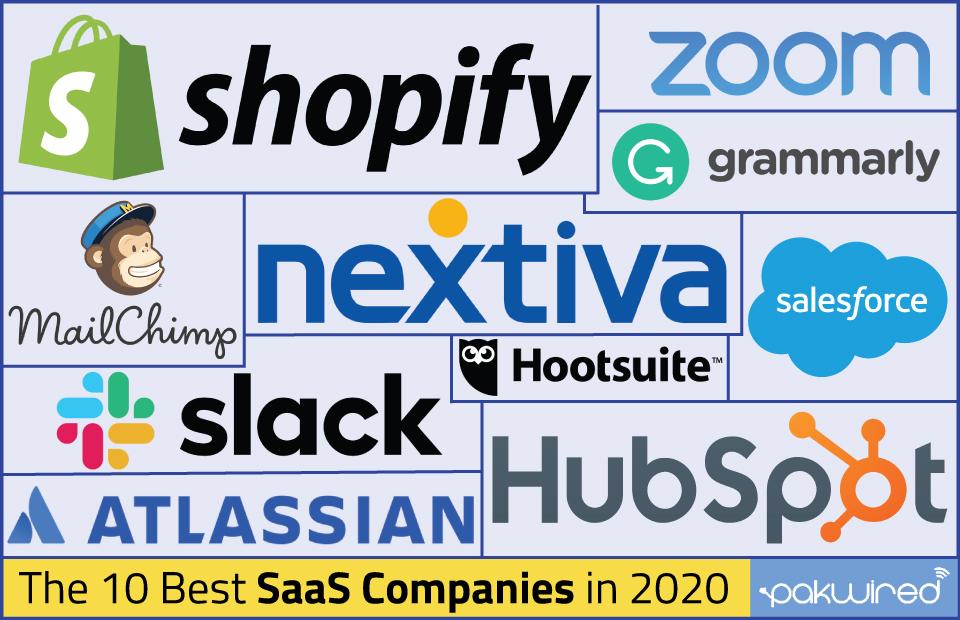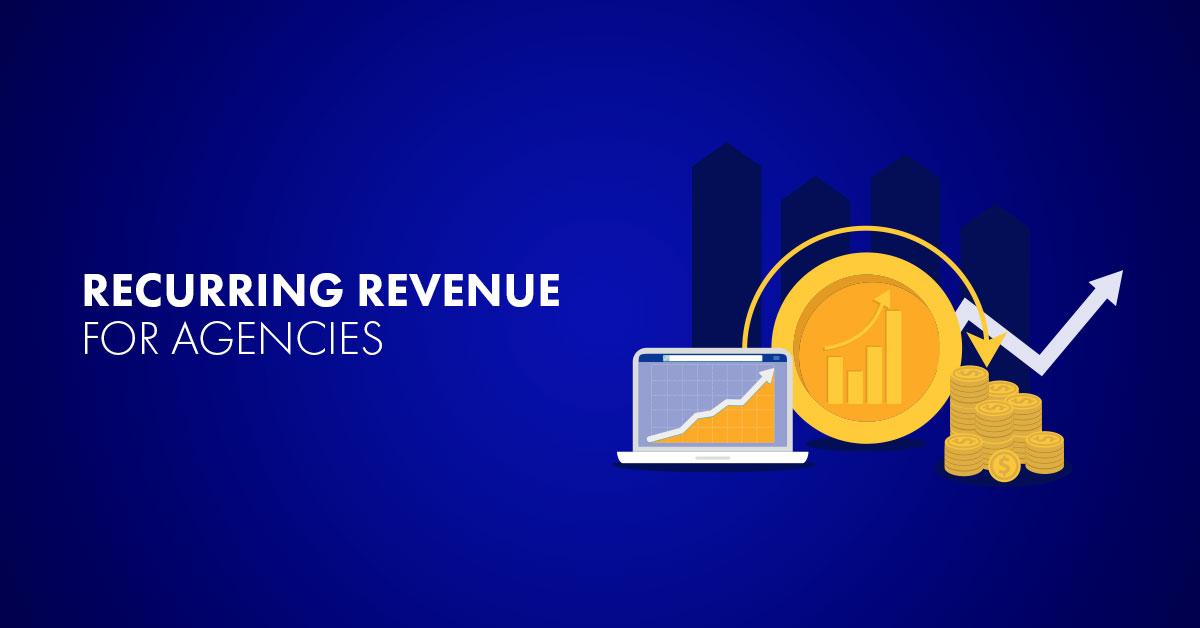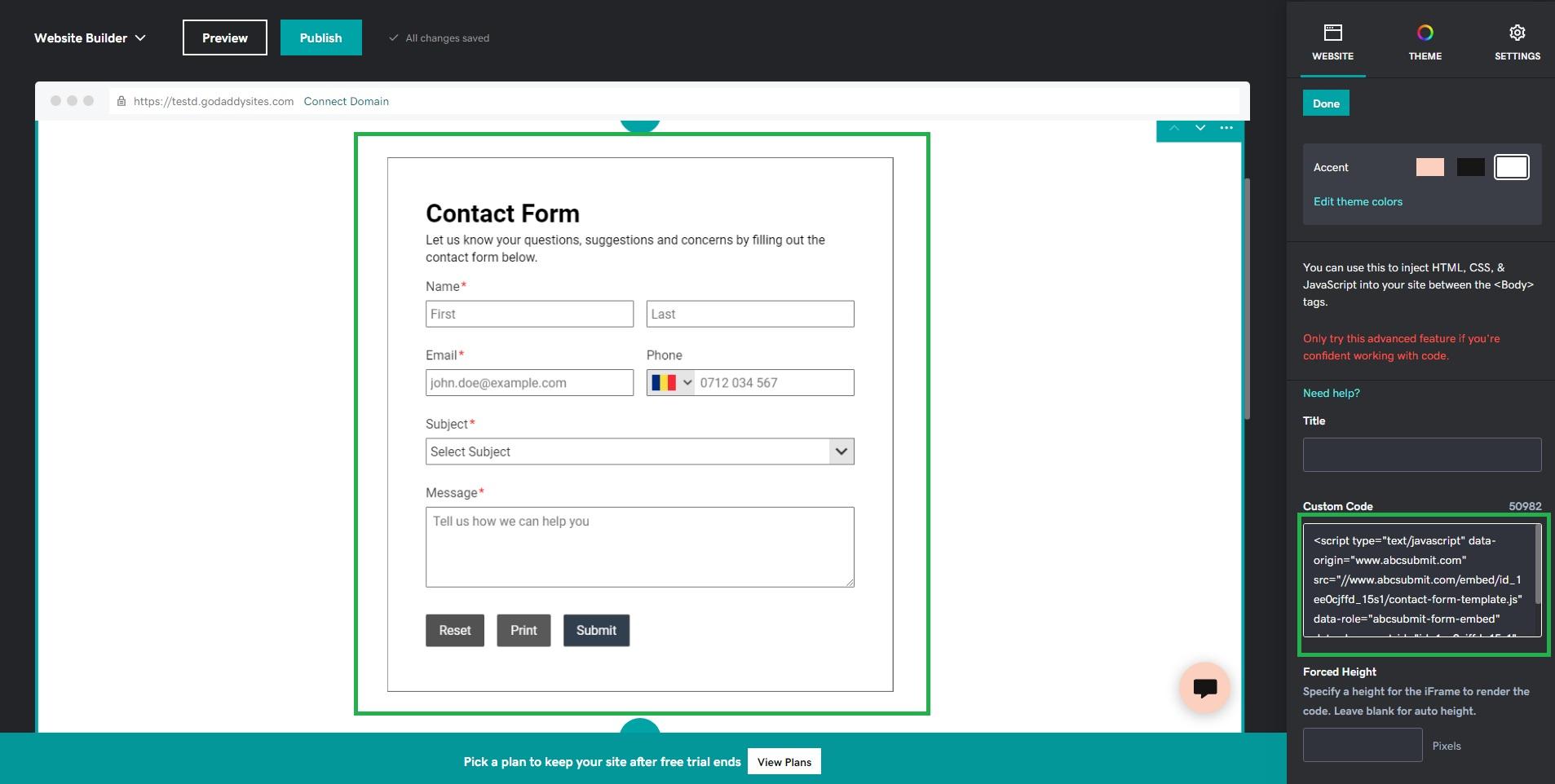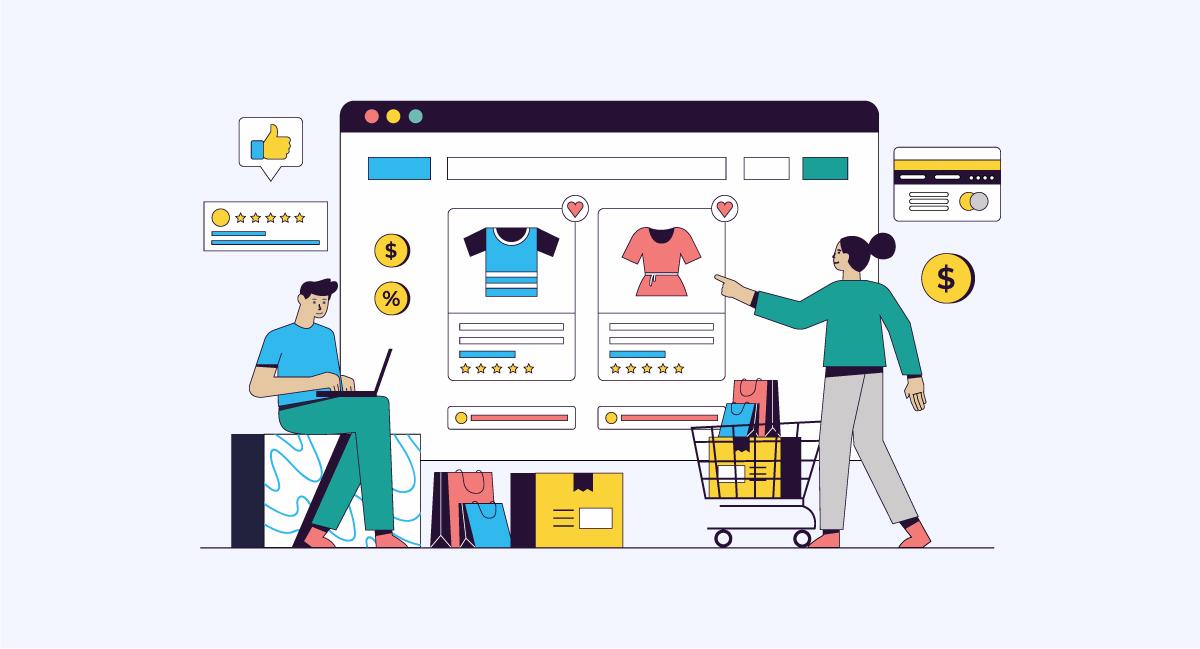
What Makes a Great Ecommerce Website Development Agency?
In today’s digital age, launching an online store is more than just a trendy idea; it’s a necessity for businesses aiming to thrive. But let’s face it: not all ecommerce websites are created equal. If you want your online venture to stand out in the crowded marketplace, partnering with a top-notch ecommerce website development agency is crucial. But what exactly sets a great agency apart from the rest?
Picture this: You’ve got an incredible product, but if your website is clunky, slow, or difficult to navigate, potential customers will bounce in a heartbeat. That’s where the right agency steps in. They don’t just build websites; they create seamless, engaging shopping experiences that convert visitors into loyal customers. So, whether you’re a seasoned entrepreneur or just starting out, understanding the key traits of an exceptional ecommerce development agency can make all the difference in your business journey. Ready to dive in? Let’s uncover what truly makes a great ecommerce website development agency tick!
Identifying the Right Expertise for Your Needs
When it comes to building a successful eCommerce website, finding the right expertise is crucial. The digital landscape is constantly evolving, and so are the technologies and strategies that underpin effective online retail. Therefore, you need to partner with a development agency that not only understands the mechanics of eCommerce but also aligns with your unique business goals.
Here are some factors to consider when :
- Industry Experience: Look for agencies that specialize in eCommerce development. Their experience in the industry means they are familiar with common challenges and can provide solutions that are tried and tested.
- Technical Skills: Ensure the agency has proficiency in the latest technologies and platforms. Whether it’s Magento, Shopify, or WooCommerce, they should be adept in the tools that will power your online store.
- Portfolio of Work: Review their past projects. A diverse portfolio showcasing successful eCommerce websites can give you confidence in their abilities and creativity.
- Client Testimonials: Check for reviews and testimonials. Feedback from previous clients can offer valuable insights into their level of service and expertise.
Moreover, consider their approach to development. A great agency will not only focus on the technical aspects but also on user experience design (UX). They should understand that a seamless and intuitive shopping experience is key to retaining customers and driving sales.
Collaboration is another vital aspect. The right agency will prioritize clear communication and be willing to work closely with you throughout the entire process. They should be open to feedback and flexible enough to adapt to changes as your project evolves. This collaborative spirit can make a significant difference in the final outcome.
| Key Elements | Importance |
|---|---|
| Industry Knowledge | Essential for tailored solutions |
| Technical Proficiency | Enables effective implementation |
| User Experience Focus | Crucial for customer retention |
| Communication Skills | Facilitates smoother collaboration |
Lastly, consider the agency’s post-launch support services. The digital marketplace is dynamic, and ongoing maintenance and optimization are essential to stay competitive. An ideal partner will offer services that ensure your website remains effective and up-to-date long after the initial launch.
identifying the right expertise involves looking beyond surface-level capabilities. Dig deeper into their experience, approach to user experience, collaboration style, and ongoing support. By doing so, you can ensure that your eCommerce website not only meets your expectations but also thrives in the competitive online market.
Understanding the Importance of User Experience Design
User experience design is a crucial component of any successful ecommerce website. It goes beyond mere aesthetics; it’s about creating a seamless and enjoyable journey for users. When users visit an ecommerce site, they are not just looking for products; they are seeking an experience that makes shopping effortless and enjoyable. Here’s why user experience design holds such significance:
- Enhanced Customer Satisfaction: A website that is easy to navigate and visually appealing significantly boosts customer satisfaction. Happy customers are more likely to return and make repeat purchases.
- Increased Conversion Rates: Effective user experience design leads to higher conversion rates. When users can find what they need quickly, they are more inclined to complete a purchase.
- Reduced Bounce Rates: A well-designed interface captures user attention. If visitors find a site confusing or frustrating, they will likely leave, increasing the bounce rate. A great user experience keeps people on your site longer.
- Brand Loyalty: Consistently positive experiences create trust and loyalty among customers. When users feel valued and understood, they develop an emotional connection to your brand.
- Accessibility for All: Inclusive design ensures that everyone, regardless of ability, can navigate the site effectively. This not only broadens your customer base but also reflects your brand’s commitment to inclusivity.
To illustrate the impact of user experience design on ecommerce, consider the following table comparing two ecommerce websites:
| Website | User Experience Features | Conversion Rate |
|---|---|---|
| Site A | Intuitive navigation, Fast loading times, Mobile optimization | 5.2% |
| Site B | Complex layout, Slow loading times, Poor mobile experience | 2.3% |
As evidenced, Site A, with its thoughtful design and user-centric approach, boasts a significantly higher conversion rate than Site B. This comparison underscores the necessity of investing in user experience design when developing an ecommerce platform.
Furthermore, incorporating feedback from your users can be an invaluable resource. Conducting usability tests and gathering user insights allows ecommerce agencies to fine-tune their approach, ensuring that the design meets the needs and preferences of the target audience. Agencies that prioritize user feedback can continuously improve the shopping experience, making it more relevant and engaging.
user experience design isn’t just an added bonus; it’s an essential element of ecommerce success. By understanding and implementing effective user experience strategies, ecommerce website development agencies can create platforms that not only meet but exceed customer expectations, ultimately driving growth and loyalty.
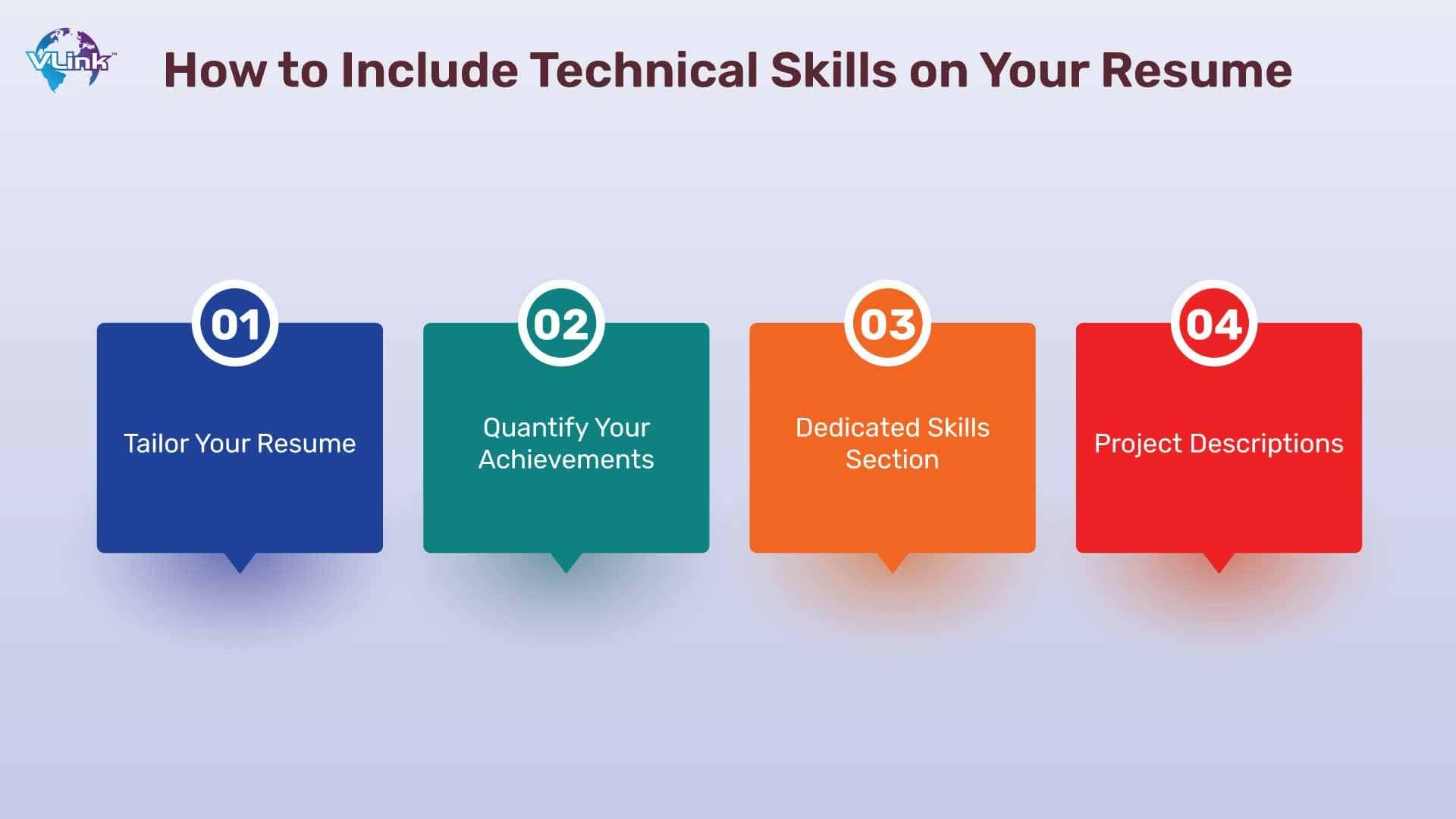
The Role of Technical Proficiency in Ecommerce Success
In the fast-paced world of ecommerce, technical proficiency is not just a nice-to-have; it’s a must. At the heart of every successful online store lies a deep understanding of the technologies that power it. This knowledge allows developers to create seamless user experiences, optimize site performance, and implement robust security measures that protect customer data.
When evaluating an ecommerce website development agency, consider their mastery of various programming languages and frameworks. Familiarity with these tools enables them to build scalable and flexible platforms that can grow alongside your business. Some of the crucial technologies to look for include:
- HTML, CSS, and JavaScript for front-end development
- PHP, Ruby, or Python for back-end functionality
- Frameworks like React, Angular, or Vue.js for dynamic user interfaces
- Content Management Systems (CMS) such as WordPress, Shopify, or Magento
Moreover, a technically proficient team understands the importance of SEO best practices and how they intertwine with site architecture. An optimized ecommerce website not only attracts more visitors but also converts them into loyal customers. Key aspects include:
- Proper use of meta tags and alt attributes
- Structured data for enhanced search visibility
- Fast loading times for improved user experience
- Mobile responsiveness to cater to a growing audience
Another vital point is the ability to integrate various payment gateways and third-party applications. A skilled agency will ensure that the ecommerce platform supports diverse payment methods, making transactions smooth and efficient. This flexibility can significantly reduce cart abandonment rates, as customers appreciate having options that suit their preferences.
Security cannot be overlooked. With the rise of cyber threats, an agency must implement robust security protocols. This includes but is not limited to:
- SSL certificates for encrypted data transmission
- Regular security audits to identify vulnerabilities
- Payment Card Industry Data Security Standard (PCI DSS) compliance
- Regular software updates to patch security flaws
Lastly, a great ecommerce website development agency places a strong emphasis on user experience (UX) design. Technical proficiency goes hand in hand with the ability to create intuitive navigation, aesthetically pleasing layouts, and engaging content that speaks to the target audience. A well-designed user journey can lead to increased conversions and customer satisfaction.
when choosing an ecommerce development partner, prioritize their technical skills alongside their creative prowess. A knowledgeable team will not only deliver a visually stunning website but also ensure it functions flawlessly, setting the stage for your ecommerce success.
Creating a Seamless Mobile Experience for Shoppers
In today’s fast-paced world, a significant portion of online shopping occurs on mobile devices. Therefore, an exceptional eCommerce website development agency must prioritize creating a seamless mobile experience. This means ensuring that every aspect of the website, from design to functionality, caters specifically to mobile users.
To achieve this, look for agencies that incorporate the following elements into their mobile strategies:
- Responsive Design: Websites should adapt to various screen sizes effortlessly, providing a consistent experience across devices.
- Fast Load Times: Mobile users are often on the go and have little patience for slow-loading pages.
- Intuitive Navigation: Simplified menus and clear pathways to product pages help users find what they’re looking for quickly.
- Touch-Friendly Elements: Buttons and links should be appropriately sized for touch interaction, minimizing frustration.
Moreover, consider how an agency utilizes mobile-specific features to enhance user engagement. Features like geolocation services can provide personalized experiences based on a user’s location. Implementing push notifications can keep customers informed about sales or new products, driving them back to the site.
Another vital aspect is integrating secure and convenient payment options. A smooth checkout process that supports mobile wallets and facilitates easy input of payment information can significantly reduce cart abandonment rates.
Agencies should also focus on creating engaging content that is optimized for mobile viewing. This includes:
- High-Quality Images: Visual content must be optimized for fast loading without sacrificing quality.
- Concise Messaging: Clear and engaging copy that quickly communicates value can enhance user experience.
- Video Integration: Short, informative videos can captivate attention and encourage purchases.
Lastly, ongoing testing and optimization are critical. A great eCommerce agency should employ tools to analyze user behavior, identifying areas for improvement. This iterative process ensures that the mobile experience continually evolves based on actual user feedback and changing trends.
| Mobile Experience Features | Importance |
|---|---|
| Responsive Design | Ensures compatibility across devices |
| Fast Load Times | Reduces bounce rates |
| Intuitive Navigation | Enhances user satisfaction |
| Secure Payment Options | Builds consumer trust |
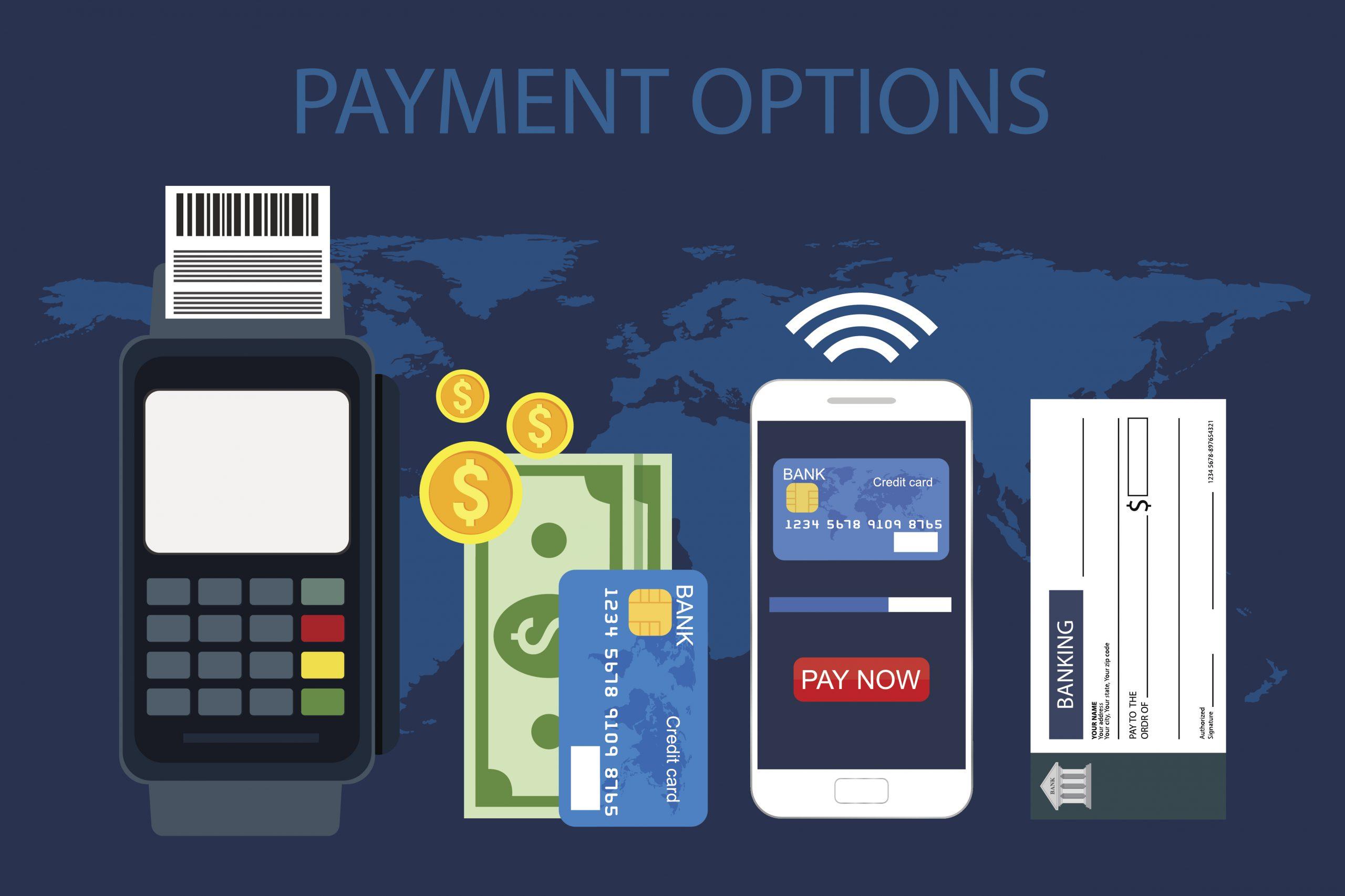
Integrating Payment Solutions That Boost Conversions
Integrating payment solutions is a game-changer for ecommerce businesses looking to enhance their conversion rates. A well-implemented payment system can streamline the checkout process, reduce cart abandonment, and encourage repeat purchases. Here are some key elements to consider:
- Diverse Payment Options: Customers have different preferences when it comes to payments. Offering options such as credit cards, PayPal, Apple Pay, and even cryptocurrencies can cater to a broader audience.
- User-Friendly Interfaces: An intuitive payment interface builds trust and enhances the user experience. Make sure the steps to complete a purchase are clear and straightforward.
- Mobile Optimization: With more shoppers using mobile devices, ensure that your payment solution is optimized for mobile. A responsive design can significantly reduce friction during the checkout process.
- Security Features: Highlighting security measures like SSL certificates and PCI compliance can reassure customers about their data safety, which is crucial for conversion.
Furthermore, consider implementing features like one-click payments or saved payment methods, which can significantly reduce the time it takes for customers to complete their purchases. These options not only enhance the user experience but also encourage impulse buying, increasing overall sales.
Another vital aspect to consider is the integration of analytics tools. These tools provide insights into how customers interact with your payment options. By analyzing this data, businesses can identify bottlenecks in the checkout process and make necessary adjustments, ultimately leading to higher conversion rates.
| Payment Option | Pros | Cons |
|---|---|---|
| Credit/Debit Cards | Widely accepted, quick transactions | Risk of fraud |
| PayPal | Trusted platform, easy checkout | Fees for transactions |
| Cryptocurrency | Low transaction fees, anonymity | Volatility in currency value |
Lastly, never underestimate the power of customer support. A robust support system, such as live chat, not only assists customers during the payment process but also builds loyalty. When customers know they can get help quickly, they are more likely to complete their purchase.
In sum, the integration of effective payment solutions can significantly boost your ecommerce site’s conversion rates. By offering variety, enhancing user experience, ensuring security, and providing analytical insights, you can create a seamless shopping experience that keeps customers coming back for more.
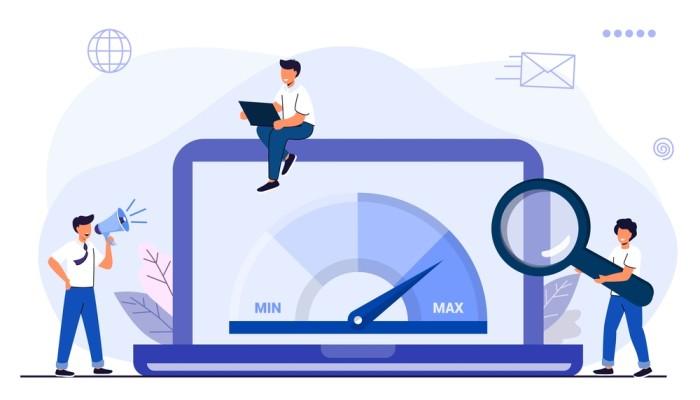
Optimizing Website Speed and Performance for Better Sales
In today’s fast-paced digital landscape, a slow-loading website can be a major roadblock to sales. Shoppers expect a seamless experience, and even a one-second delay can lead to significant drops in conversion rates. To transform your ecommerce site into a sales powerhouse, focusing on speed and performance is essential.
Here are some key strategies to enhance your website’s speed:
- Image Optimization: Large image files can drastically affect load times. Use compression tools to reduce file sizes without compromising quality. Consider modern formats like WebP for better performance.
- Minification of CSS and JavaScript: Removing unnecessary characters from your code can help reduce file sizes. Tools like UglifyJS and CSSNano can automate this process.
- Leverage Browser Caching: By storing certain files in a visitor’s browser, you can speed up loading times on repeat visits. Set expiration dates or a maximum age in the HTTP headers.
- Content Delivery Network (CDN): A CDN can distribute your website’s content across multiple servers worldwide, ensuring faster access for users, regardless of their geographical location.
- Reduce Server Response Time: Investigate your hosting service. A slow server can significantly impact load times. Opt for a reliable hosting provider with fast response times.
Furthermore, utilizing performance monitoring tools can provide insights into your website’s functionality. These tools can help identify bottlenecks and areas needing attention. Some popular options include:
| Tool | Key Features |
|---|---|
| Google PageSpeed Insights | Analyzes performance on mobile and desktop. |
| GTmetrix | Offers detailed performance reports and recommendations. |
| Pingdom | Real-time monitoring and performance tracking. |
| WebPageTest | Provides comprehensive testing from various locations. |
Once your site is running smoothly, don’t forget to regularly review and update your optimizations. Web technologies are constantly evolving, and staying ahead of the curve will help maintain your competitive edge. Engage with your web development agency to ensure that they are continuously implementing best practices for performance optimization.
Ultimately, a fast and efficient website not only improves user experience but also boosts your credibility and trustworthiness. When customers feel confident in your site’s performance, they are more likely to complete their purchases. Make speed a priority and watch your sales soar!
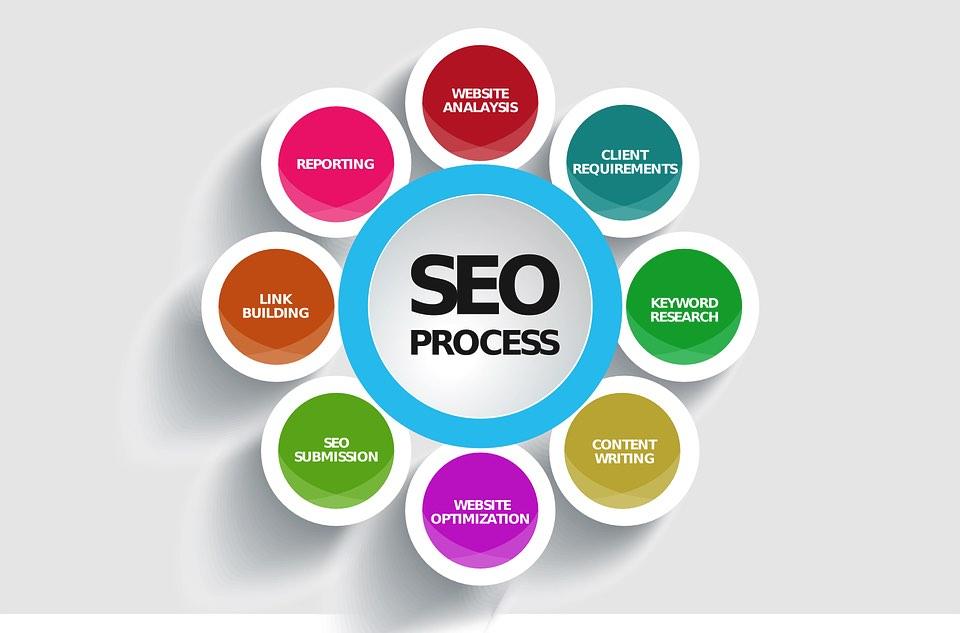
Leveraging SEO Strategies to Increase Online Visibility
Boosting Your Online Presence with the Right Strategies
In today’s digital landscape, simply having an ecommerce website isn’t enough; you need to ensure that it stands out from the competition. This is where effective SEO strategies come into play. By implementing targeted techniques, you can significantly enhance your website’s visibility, attract more visitors, and ultimately drive conversions.
One of the first steps in leveraging SEO is conducting comprehensive keyword research. This process involves identifying the terms and phrases that potential customers are using when searching for products similar to yours. A great ecommerce website development agency will utilize tools like Google Keyword Planner and SEMrush to discover high-traffic keywords that can be seamlessly integrated into your site’s content.
Next, optimizing on-page elements is crucial. Ensure that your titles, meta descriptions, and headers not only include relevant keywords but also provide a clear value proposition. Here are some essential on-page elements to consider:
- Title Tags: Use engaging and descriptive titles that reflect the content.
- Meta Descriptions: Create compelling summaries that encourage click-throughs.
- Header Tags: Organize your content with H1, H2, and H3 tags for better readability.
Moreover, the user experience (UX) plays a pivotal role in SEO. A well-designed website that loads quickly, is mobile-responsive, and has intuitive navigation will not only keep users engaged but also improve your search rankings. Google prioritizes websites that offer an exceptional user experience, so investing in UX design is a strategy that pays off in the long run.
Content marketing is another powerful component of an effective SEO strategy. Regularly updating your blog with informative articles, product guides, and how-to posts not only establishes your authority in your niche but also attracts organic traffic. Incorporating keywords naturally into high-quality content can enhance your site’s relevancy and searchability.
link building is essential for establishing credibility and authority. Encourage other reputable websites to link back to your content. This can be achieved through guest blogging, partnerships, or creating shareable infographics. Here’s a simple breakdown of link building strategies:
| Strategy | Description |
|---|---|
| Guest Blogging | Write articles for other sites to get backlinks. |
| Influencer Outreach | Collaborate with influencers for exposure and links. |
| Social Media Sharing | Promote your content on social platforms to gain visibility. |
by leveraging proven SEO strategies, you can position your ecommerce website for success. The right agency will not only help you implement these techniques but also tailor them to meet your specific business goals. It’s about creating a roadmap to online visibility that can lead to sustained growth and profitability.

The Value of Ongoing Support and Maintenance
When it comes to building a successful eCommerce website, the journey doesn’t end once the site goes live. In fact, the ongoing support and maintenance of your online store can be the difference between thriving and merely surviving in the competitive digital landscape.
One of the primary reasons to invest in continual support is security. Cyber threats are constantly evolving, and a single vulnerability can put your customers’ data at risk, leading to financial loss and damage to your brand’s reputation. Regular updates and security audits from your development agency ensure that your site is fortified against the latest threats.
Moreover, software updates are crucial for keeping your website running smoothly. Whether it’s a new version of your eCommerce platform, enhancements in payment gateways, or performance optimizations, having a dedicated team that monitors and implements these updates is invaluable. Without timely updates, you may encounter bugs or, worse, find your website offline, costing you sales and customer trust.
Another significant aspect to consider is performance optimization. As your store grows, you might experience an increase in traffic, which can strain your website’s performance. A great development agency will provide ongoing maintenance that includes speed assessments and optimizations, ensuring that your site remains fast and responsive. This is not only important for user experience but also essential for SEO rankings.
Additionally, customer support is a vital part of ongoing maintenance. Your agency should be equipped to handle any technical issues or questions that arise, ensuring that you can focus on what you do best—running your business. Having access to expert assistance can save you time and stress, allowing for quicker problem resolution and ensuring your customers remain satisfied.
Another benefit is the ability to scale your website effectively. As your business grows, you may need to add new features, products, or functionalities. Your eCommerce development agency should provide insights and support to help you adapt your website to meet evolving market demands. This could include integrating new payment methods, expanding product lines, or even implementing advanced analytics tools.
To illustrate the importance of ongoing support, consider the following table:
| Service | Benefit |
|---|---|
| Security Audits | Protects against data breaches |
| Regular Backups | Prevents data loss |
| Performance Monitoring | Ensures fast load times |
| Feature Updates | Keeps the site relevant |
| Customer Support | Quick resolution to issues |
cannot be overstated. It not only safeguards your investment but also positions your eCommerce store for sustained success. When evaluating a development agency, be sure to ask about their support and maintenance offerings, as these will play a crucial role in your online store’s long-term health and growth.

How Custom Solutions Can Set You Apart from Competitors
In today’s saturated ecommerce landscape, standing out is more crucial than ever. A generic approach simply won’t cut it; your business needs custom solutions that resonate with your target audience and reflect your brand’s unique identity. These tailored strategies not only enhance user experience but also foster customer loyalty, creating a significant competitive edge.
When you invest in a development agency that prioritizes custom solutions, you gain:
- Brand Differentiation: Unique designs and features that align with your brand ethos.
- Improved User Experience: Customized navigation and interfaces that cater to your audience’s preferences.
- Scalability: Tailored solutions that can grow alongside your business, allowing for seamless expansion.
- Enhanced Performance: Optimized functionalities that lead to faster load times and reduced bounce rates.
Moreover, custom solutions enable your website to integrate specific tools and technologies that are essential for your business operations. Whether it’s a specialized inventory management system, unique payment gateways, or personalized marketing automation, having a website tailored to your needs allows for greater operational efficiency.
It’s also worth mentioning that custom solutions can significantly improve your SEO strategy. By implementing specific keywords and structures that align with your business goals, you can enhance your visibility on search engines, making it easier for potential customers to discover you.
Take a look at how a custom approach can benefit various ecommerce sectors:
| Industry | Custom Solution Examples |
|---|---|
| Fashion | Virtual fitting rooms, personalized style recommendations |
| Electronics | Product comparison tools, live chat support |
| Health & Beauty | Online consultations, subscription models for products |
Ultimately, choosing an ecommerce website development agency that emphasizes custom solutions will empower you to carve a niche for yourself in a crowded marketplace. It’s about understanding your specific business needs and deploying strategies that not only meet but exceed customer expectations.
So, when evaluating potential agencies, ask them about their experience with custom solutions. Their ability to adapt to your requirements and innovate accordingly will be a telltale sign of how well they can help you distinguish yourself from the competition.
Building Trust Through Secure and Reliable Ecommerce Platforms
In the digital age, consumers are becoming increasingly aware of the importance of security and reliability when shopping online. A well-designed ecommerce platform not only attracts customers but also fosters a sense of trust that can significantly influence purchasing decisions. Building trust starts with ensuring that the website is equipped with the latest technology to protect sensitive information.
Security features such as SSL certificates, secure payment gateways, and robust encryption protocols are essential. These elements work together to safeguard customer data, reducing anxiety around online transactions. Consumers are more likely to complete their purchases when they see indicators of security, like the padlock icon in their browser’s address bar.
Moreover, reliability in an ecommerce platform means that the website should operate smoothly without interruptions. A reliable site not only enhances user experience but also keeps customers coming back. Investing in a quality ecommerce development agency ensures that your platform can handle traffic spikes, load quickly, and provide seamless navigation. Consider the following factors when assessing reliability:
- Uptime Guarantees: Aim for a hosting provider that offers a minimum of 99.9% uptime.
- Performance Optimization: Features like CDN integration and image optimization can significantly boost loading speeds.
- Responsive Design: Ensure the website is mobile-friendly, as a growing number of consumers shop via their smartphones.
Another key aspect of building trust is transparency. Customers appreciate clear information about shipping, returns, and privacy policies. A well-structured FAQ section can preemptively answer queries, further reducing hesitation during the purchasing process. Here’s a simple table showcasing critical transparency elements:
| Transparency Elements | Importance |
|---|---|
| Shipping Information | Sets clear expectations on delivery times. |
| Return Policy | Encourages purchases by reducing buyer risk. |
| Privacy Policy | Builds trust by explaining data usage. |
Moreover, integrating customer reviews and ratings can further enhance trust. When potential buyers see positive feedback from previous customers, it provides social proof that your ecommerce platform is reliable. Additionally, a responsive customer service feature can help in addressing concerns promptly, making customers feel valued and heard.
Lastly, continual updates and improvements to your ecommerce platform signal to customers that you are dedicated to their experience. Regularly implementing the latest security measures, performance enhancements, and user interface upgrades can keep your site fresh and trustworthy. By choosing the right ecommerce website development agency, you can ensure that your online store not only meets these criteria but exceeds customer expectations.

Utilizing Data Analytics for Informed Decision Making
In the fast-paced world of eCommerce, making informed decisions is pivotal to achieving success. Data analytics serves as a powerful tool that helps businesses navigate the complexities of online retail. By harnessing the power of data, a great eCommerce website development agency can drive its strategies, optimize user experiences, and ultimately boost sales.
When an agency utilizes data analytics, it can:
- Understand Customer Behavior: Analyzing user interactions on the website reveals patterns and preferences, allowing agencies to tailor the shopping experience effectively.
- Optimize Inventory Management: Data insights can forecast demand trends, ensuring that the right products are available at the right time, reducing overstock and stockouts.
- Enhance Marketing Strategies: By analyzing campaign performance metrics, agencies can identify which channels and messages resonate most with their audience, leading to more efficient marketing spends.
- Personalize User Experience: Leveraging data allows for personalized recommendations and targeted offers, fostering deeper connections with customers.
Moreover, a great agency employs various analytical tools to gather data. Here are some popular tools and their primary functions:
| Tool | Function |
|---|---|
| Google Analytics | Tracks website traffic and user behavior. |
| Hotjar | Provides heatmaps and session recordings to understand user interactions. |
| SEMrush | Analyzes SEO performance and keyword rankings. |
Additionally, integrating data analytics into the decision-making process cultivates a culture of continuous improvement. With regular analysis, agencies can adapt to changing market dynamics and customer needs quickly. This agility is what sets top-performing eCommerce websites apart from their competitors.
a skilled eCommerce development agency knows that data is only as good as the insights drawn from it. They prioritize training and empowering their team members to interpret data effectively. This ensures that every decision, from design choices to marketing strategies, is backed by solid evidence.
the integration of data analytics into the decision-making process is not just an option; it’s a necessity for eCommerce website development agencies aiming for greatness. By leveraging data-driven insights, they can craft superior online experiences that not only attract customers but also convert them into loyal buyers.

The Impact of Strong Communication Throughout the Development Process
In the dynamic world of ecommerce website development, communication is the cornerstone that can make or break a project. When teams collaborate effectively, the synergy leads to innovative solutions and a more streamlined development process. Regular exchanges of ideas and feedback not only clarify goals but also foster a sense of unity and purpose among team members.
Transparency is crucial throughout the development journey. By maintaining open lines of communication, stakeholders can easily share updates, shifts in strategy, or potential roadblocks. This transparency not only keeps everyone on the same page but also helps build trust, which is essential in a partnership setting. Clients feel more involved when they are kept in the loop, leading to better alignment with their vision.
Another vital aspect is active listening. Effective communication isn’t just about talking; it’s equally about understanding. Development teams that practice active listening can better grasp client needs, preferences, and pain points. This can lead to customized solutions that enhance user experience and drive sales. When clients see their feedback integrated into the project, it amplifies their satisfaction and loyalty.
To facilitate robust communication, employing the right tools can make a significant difference. Here are some popular tools often used in ecommerce development contexts:
- Slack: Ideal for real-time messaging and quick updates.
- Trello: Great for project management and tracking progress.
- Zoom: Perfect for face-to-face meetings, no matter the distance.
- Asana: Helps teams organize tasks and set deadlines efficiently.
Additionally, having regular check-ins can ensure that everyone remains aligned. Weekly updates or bi-weekly sprint reviews can help identify any emerging issues before they escalate. These meetings serve as a platform for teams to discuss accomplishments and challenges, cultivating a proactive rather than reactive approach.
When challenges arise, problem-solving becomes a collaborative effort. Strong communication encourages team members to voice concerns and brainstorm solutions together. This collaborative spirit can lead to innovative approaches that may not have surfaced in a less communicative environment.
| Communication Aspect | Benefit |
|---|---|
| Transparency | Builds trust and keeps everyone aligned. |
| Active Listening | Ensures client needs are understood and met. |
| Regular Check-ins | Identifies issues early and promotes accountability. |
| Collaborative Problem-solving | Encourages innovation and creative solutions. |
Ultimately, the impact of strong communication extends beyond mere project management. It creates a culture of collaboration and enthusiasm, where ideas flow freely and everyone feels valued. This environment not only leads to successful ecommerce websites but also to long-lasting relationships between clients and development agencies.

Why Portfolio and Case Studies Matter in Choosing an Agency
When embarking on the journey to find the right ecommerce website development agency, delving into their portfolio and case studies is crucial. These elements provide a glimpse into the agency’s capabilities, creativity, and the results they can deliver. A well-curated portfolio is more than just a collection of previous work; it represents the agency’s design philosophy, technical skills, and the breadth of industries they have experience with.
Case studies serve as an invaluable tool in understanding how an agency approaches specific challenges. They typically outline the problem a client faced, the solutions implemented, and the outcomes achieved. This structured narrative not only showcases the agency’s expertise but also illustrates their strategic thinking and adaptability. A compelling case study can answer pivotal questions like:
- How did the agency handle a unique set of requirements?
- What innovative solutions were proposed?
- What measurable results did the agency achieve for their client?
Moreover, examining the variety in an agency’s portfolio can highlight their versatility. Different industries demand different approaches, and seeing successful projects across sectors can be a testament to an agency’s ability to tailor their services. Look for:
- Diverse designs that cater to various market segments.
- Integration of latest technologies that enhance user experience.
- Responsive design that ensures accessibility across devices.
Additionally, the quality of the work showcased in a portfolio can be a direct reflection of the agency’s passion and commitment. High-quality visuals, engaging content, and intuitive navigation all point towards a team that values excellence. When reviewing their projects, consider the following attributes:
- Aesthetic appeal—Does the design resonate with its target audience?
- Functionality—Is the website easy to navigate and use?
- Performance metrics—Are there figures illustrating improved sales or engagement?
To further emphasize the importance of these elements in decision-making, consider this simple comparison of key factors:
| Factor | Portfolio Insight | Case Study Insight |
|---|---|---|
| Design Quality | Visual appeal of past projects | User testimonials and feedback |
| Problem-Solving Skills | Variety of industries handled | Specific challenges faced and resolved |
| Results Delivered | Showcases of successful launches | Quantifiable outcomes and metrics |
don’t underestimate the story behind each project. A powerful narrative can elevate a portfolio or case study from merely a list of accomplishments to a compelling account of growth, innovation, and partnership. When speaking with potential agencies, inquire about the stories behind their showcased work. This conversation can provide deeper insight into their values and how they could align with your vision.

Emphasizing Scalability for Future Growth and Success
When it comes to building an ecommerce website, scalability isn’t just a buzzword; it’s a fundamental component that can determine the long-term success of your online business. A website that can grow and adapt alongside your business ensures that you won’t face costly and disruptive overhauls down the line. This is where a great ecommerce website development agency comes into play, as they prioritize sustainable and flexible design principles from the outset.
The foundation of a scalable ecommerce platform lies in its architecture. A competent agency should implement modular design elements that allow for easy updates and the addition of new features without compromising site performance. This means using technologies that support rapid scaling, such as:
- Cloud Hosting: Opt for providers that allow you to increase resources on-the-fly.
- Content Delivery Networks (CDNs): Ensure fast loading times, even as your traffic swells.
- Microservices Architecture: Develop independent services that can be updated or replaced without affecting the whole system.
Another critical aspect of scalability is the ability to handle increased product offerings. As your business grows, you’ll want to expand your inventory. A great agency anticipates this need and implements a robust product management system that can accommodate an ever-increasing catalog without sacrificing user experience.
| Feature | Importance |
|---|---|
| Dynamic Search Functionality | Helps users find products easily as the catalog expands. |
| Advanced Filtering Options | Enhances user experience by allowing precise searches. |
| Bulk Upload Tools | Simplifies adding new products in large quantities. |
Additionally, a focus on mobile responsiveness is crucial for scalability. With the surge in mobile ecommerce, your website must deliver an exceptional experience across all devices. A development agency that emphasizes responsive design will ensure that your site not only looks great but also functions flawlessly, no matter the screen size. This adaptability is key to capturing a broader audience and increasing your potential customer base.
Security is another essential consideration for scalability. As your business grows, so does the risk of cyber threats. An exceptional agency will implement top-notch security protocols, including:
- SSL Certificates: To secure data transmission.
- Regular Security Audits: To identify and rectify vulnerabilities.
- Data Encryption: To protect sensitive customer information.
ongoing support and maintenance are vital to ensuring your ecommerce platform remains scalable over time. The best agencies don’t just develop and launch your site; they commit to a partnership that includes regular updates and optimizations based on performance analytics and user feedback. This approach allows your site to evolve with market trends and consumer behavior, ensuring you stay ahead of the competition.
Frequently Asked Questions (FAQ)
Q&A: What Makes a Great Ecommerce Website Development Agency?
Q: What should I look for when choosing an ecommerce website development agency?
A: Great question! First and foremost, you want an agency that understands your business needs and goals. Look for a team that specializes in ecommerce and has a strong portfolio showcasing successful projects. Check for client testimonials and case studies to see how they’ve helped businesses like yours thrive.
Q: Why is experience important in an ecommerce development agency?
A: Experience is key! An agency with a rich background in ecommerce will have faced various challenges and learned how to overcome them. They’ll be familiar with best practices, emerging trends, and the latest technologies. This experience translates into a smoother development process for you and a more robust final product.
Q: How can I tell if an agency stays updated with the latest trends?
A: A great agency will be proactive in sharing knowledge. Check their blog, social media presence, and any industry events they attend. If they’re writing about the latest ecommerce trends, tools, and technologies, that’s a good sign they’re staying current and can offer you cutting-edge solutions.
Q: What role does customer support play in choosing an agency?
A: Customer support is crucial! You want an agency that’s not just focused on launching your website but also on maintaining and optimizing it afterwards. A responsive support team can help you troubleshoot issues, implement updates, and adapt to changes in the market, ensuring your ecommerce site remains competitive.
Q: Can you explain the importance of a tailored approach in ecommerce development?
A: Absolutely! Every business is unique, and your ecommerce website should reflect that. A great agency will take the time to understand your brand, target audience, and specific needs. They’ll create a customized solution rather than a one-size-fits-all template, which can make a significant difference in user experience and conversions.
Q: How does SEO factor into ecommerce website development?
A: SEO is vital for driving organic traffic to your website! A good ecommerce development agency will incorporate SEO best practices from the very beginning—optimizing site structure, product descriptions, and images—so your site is search-engine friendly. This ensures you’re more visible to potential customers right from launch.
Q: What about mobile responsiveness? Is it really that important?
A: Yes, it’s essential! With more shoppers using mobile devices to browse and make purchases, a mobile-responsive design is non-negotiable. A top-notch agency will prioritize creating a seamless shopping experience across all devices, ensuring that your customers can easily navigate and shop from anywhere.
Q: How do successful ecommerce agencies ensure website security?
A: Security should be a top priority for any ecommerce site! A great agency will implement robust security measures like SSL certificates, regular security audits, and compliance with the latest regulations. They should also educate you on maintaining security post-launch, to protect both your business and your customers.
Q: What’s the bottom line? How do I know if I’ve found the right agency?
A: Trust your instincts! If an agency listens to your needs, demonstrates expertise and creativity, communicates clearly, and offers ongoing support, you’re likely on the right track. Remember, this is a partnership, and a great ecommerce website development agency will be just as invested in your success as you are!
Final Thoughts
choosing the right ecommerce website development agency can make all the difference in your online success. As we’ve explored, a great agency doesn’t just build websites; they craft experiences that resonate with your audience, drive conversions, and elevate your brand. Look for teams that prioritize communication, stay ahead of industry trends, and understand the nuances of your specific market.
Remember, your website is often the first impression potential customers have of your business. It needs to be engaging, user-friendly, and optimized for every device. So, take your time to find a partner who not only has the technical skills but also shares your vision and values.
Ready to take the plunge? The right agency is out there, waiting to help you transform your ecommerce dreams into reality. If you’re feeling inspired, start researching and reach out to potential partners today. Your future customers are just a click away!



